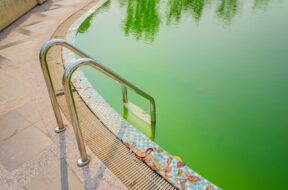

Want to learn more about algaecide? Read on to find out when to add algaecide to your pool maintenance routine and other helpful tips.
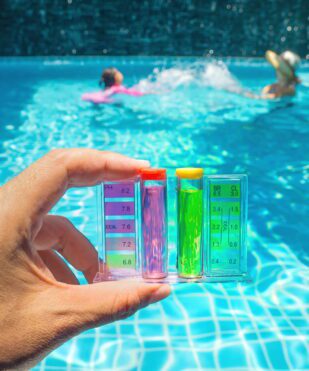
This article describes the chemistry involved in keeping your pool or hot tub safe and your water crystal clear.
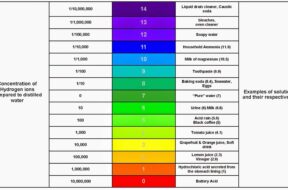
Maintaining both pH and total alkalinity in your swimming pool is important for keeping your pool properly sanitized and non-corrosive. Total alkalinity is to pH what cyanuric acid is to free chlorine. Total alkalinity stabilizes pH levels. The ideal pool pH level is 7.4 to 7.6. The ideal total alkalinity level is 80 to 120 ppm.
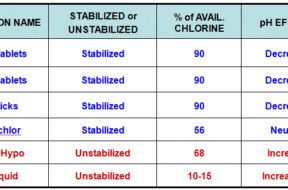

Sanitizers come in liquid, powder, and tablet form, and many pool owners have questions about the differences between them. In this article, we will get your questions answered.
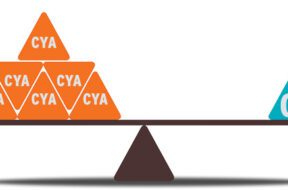

The degree to which chlorine is effective in sanitizing your pool by breaking down contaminants is highly correlated to the degree to which pH is kept in balance.
In this article, we dive into the relationship between chlorine and pH, and how pH of water changes the effectiveness of chlorine.
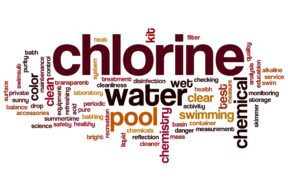

Chlorine is the most important chemical when it comes to maintaining sparkling clean water that is safe to swim in. Chlorine sanitizes your pool water by attacking and killing harmful microorganisms, called contaminates, that could lead adverse health consequences. Therefore, it is critical to know how to test the chlorine in your pool or hot tub, as well as what to do when your chlorine levels are outside recommended ranges.
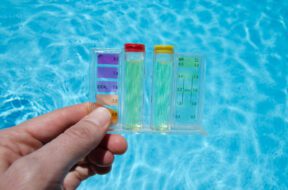

In general, chlorine levels should be tested at least twice per week. However, the answer to this question depends heavily on how often your swimming pool is used, who uses your pool, and weather events that may introduce a large amount of fresh water into your pool.
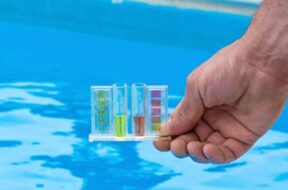

Want to know what the different types of chlorine mean? Read on to learn about Free chlorine, combined Chlorine, and Total chlorine.


Want to learn more about algaecide? Read on to find out when to add algaecide to your pool maintenance routine and other helpful tips.
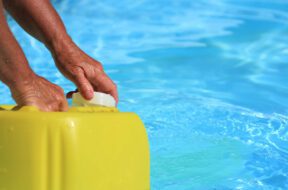

In this quick guide, we’ll answer the question “can you over shock a pool” and unveil the factors to consider when shocking a pool.



Maintaining both pH and total alkalinity in your swimming pool is important for keeping your pool properly sanitized and non-corrosive. Total alkalinity is to pH what cyanuric acid is to free chlorine. Total alkalinity stabilizes pH levels. The ideal pool pH level is 7.4 to 7.6. The ideal total alkalinity level is 80 to 120 ppm.
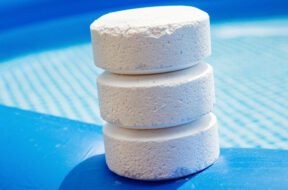

The Association of Pool and Spa Professionals recommends free chlorine levels for both swimming pools and hot tubs be kept between 2.0 and 4.0 ppm. However, the Center for Disease Control recommends free chlorine stay above 1 ppm in pools and 3 ppm in hot tubs.